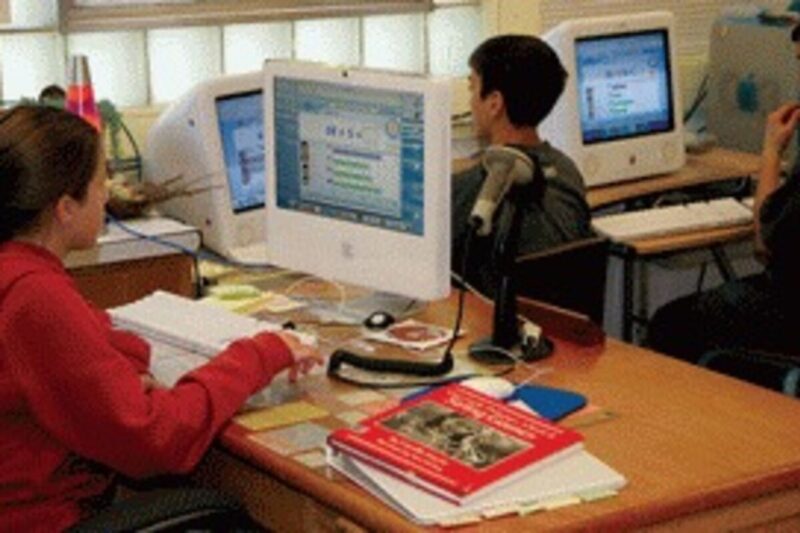Scott Swanson
Of The New Era
Marsha Carper’s entire sixth-grade class were staring into computers in her classroom and the Holley School library last Wednesday, fingers dancing over the keypads, solving math problems.
On-line were students throughout the world – over 80 other countries to be exact – matching wits in real-time mental arithmetic in 60-second competitions.
This is the first time Carper has had a class participate in the event, which offers prizes to individual student and school winners. The prize for Carper, she said, was the free license to the Live Mathematics and VmathLive game engine for the remainder of the school year, which was offered to each class trying the event for the first time that scored at least 10,000 points. Carper’s class ended up with 11,697.
Over the 48 hours that March 5 lasted throughout the world (from the point when the day began west of the International Dateline to the moment that it was no longer March 5 anywhere in the world) students who played got 1 point for each correct answer.
Problems ranged through addition, subtraction, multipli-cation and division.
“I did mostly subtraction because I’m pretty good at subtraction,” said student Jesse Hoover. “I got first place in it.”
Students faced varying levels of difficulty, based on how they did on previous games. They play three other students, who could be in their classroom or on the other side of the world.
Rachael Miller said she competed Wednesday against youngsters from Africa and Pakistan.
“I’ve won quite a few times,” she said, adding that her speed in solving multiplication problems got better during the day. “You get faster at doing it. It’s really tense.”
Jacob Marner said he liked shooting for high scores because he could earn extra credits by beating his record.
“It’s really tense because you have to hit the keyboard really fast,” he said. “Some of (the other contestants) are really good.”
According to http://www.worldmathday.com, schools in countries as wide-ranging as Albania, Bahrain, Malta, Sychelles and the United Arab Emirates participated. The flag of the country from which the contestant hailed appeared on the screen next to their Mathlete avatar, the character they create to play under.
Carper said just playing the game for a morning not only seemed to help her students with their math, but also taught them other things not related to arithmetic.
“They’re quicker (at solving problems),” she said. “As a little aside, they’re learning about people in other countries, countries they’ve never heard of.”





